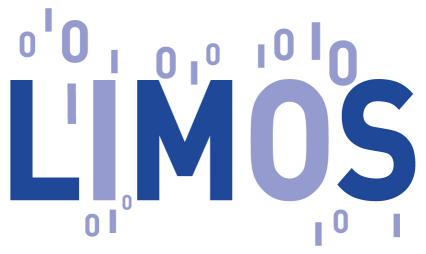|
Date : 19 juin 2024 09:30 - Type : Thesis - Benjamin ANTHOUARD - Amphithéatre Campus Charpak
Gestion tactique et opérationnelle des tunnels de contraintes temporelles |
Les systèmes de fabrication des semi-conducteurs sont connus pour être les systèmes manufacturiers les plus complexes au monde. En particulier, la petite taille et la complexité des composants fabriqués imposent des contraintes temporelles (TCs). Une TC correspond à une durée maximale à ne pas dépasser entre deux étapes de fabrication non forcément consécutives. Les TCs peuvent avoir des configurations complexes en s'enchaînant ou se chevauchant (tunnels de contraintes temporelles, TCTs). La gestion des TCs, et en particuliers des TCTs, est relativement peu couverte dans la littérature pour des problèmes au niveau opérationnel, et inexistante au niveau tactique à notre connaissance.
Au niveau tactique, une approche par génération de colonnes utilisant la notion de route temporelle a été étendue dans cette thèse afin d'intégrer les TCs dans l'optimisation des plans de production. La modélisation des routes temporelles au niveau machine, et la modélisation des en-cours ont permis de modéliser et résoudre des instances industrielles. L'impact des TCs sur les plans tactiques a pu être quantifié, montrant la pertinence d'intégrer ces contraintes à ce niveau de décision.
Au niveau opérationnel, un modèle de simulation proposé dans des travaux précédents a été significativement amélioré. Les machines ont été modélisées de manière plus précise, afin de prendre en compte les machines avec des chambres en séries, en parallèles et les machines à batchs. Des indicateurs de criticité associés aux TCs ont aussi été proposés afin de compléter les informations d'autres indicateurs de performances extraits de la simulation. Les différents indicateurs ont permis de proposer des règles de gestion des TCs et TCTs basées sur un nombre maximal de produits dans un groupe de TCs. Ces règles sont créées et améliorées grâce à une heuristique itérative se basant sur les indicateurs de la simulation précédente, et sont évaluées dans la simulation suivante. L'approche d'optimisation-simulation proposée a été industrialisée dans un outil d'aide à la décision pour permettre aux gestionnaires des contraintes temporelles de valider et d'utiliser les approches proposées et pour automatiser la gestion des TCs et TCTs dans le futur.
De nombreuses perspectives sont proposées à la fois sur les travaux menés au niveau tactique et au niveau opérationnel. En particulier, différents pistes de recherche pour réduire les temps de calcul et industrialiser l'approche par génération de colonnes sont présentées.
Jury :
- YALAOUI Alice, Professeure, Université de technologie de Troyes (Rapporteuse)
- SAUER Nathalie, Professeure, Université de Lorraine (Rapporteuse)
- ABSI Nabil, Professeur, Mines Saint-Etienne (Examinateur)
- KEDAD-SIDHOUM Safia, Professeure, Conservatoire National des Arts et Métiers (Examinatrice)
- DAUZERE-PERES Stéphane, Professeur, Mines Saint-Etienne (Directeur de thèse)
- CHRIST Quentin, Docteur, STMicroelectronics (Encadrant industriel)
- ROUSSEL Renaud, Ingénieur, STMicroelectronics (Co-encadrant industriel)
- VIALLETELLE Philippe, Ingénieur, STMicroelectronics (Invité)
- MOUSTAPHA SALEH Brahim, Ingénieur, STMicroelectronics (Invité).
